Labour’s fallen 'Red Wall' in Wales - one year on from election
- Published
How do 'Red Wall' voters feel one year on?
This weekend marks a year since the Conservatives gained six seats from Labour in Wales.
The only Welsh brick remaining in Labour's northern "Red Wall" became Wales's most marginal seat.
Meanwhile, in China, cases of a new mystery pneumonia were gradually multiplying.
No-one knew the task that lay ahead for the politicians they were voting in.
But now they do, how do voters who "lent" their votes to other parties think they've fared?
'Best of a bad bunch'
Suni Coombes voted Conservative for the first time last year in Alyn and Deeside, which stayed Labour by just 213 votes.
She says they were the "best out of a bad bunch" but the economy and the promise to "get Brexit done" swung it for her.
Suni, who works in Saltney, on the England-Wales border, says she was frustrated at how the party had responded to the Covid-19 pandemic.
"Obviously, hindsight is a wonderful thing but there were a few failures, I believe.
"We didn't close the borders earlier on, like other countries."

Suni Coombes voted Conservative for the first time at last year's General Election
She adds: "What I really struggled with was when I heard that Dominic Cummings did his travelling. He didn't come out and admit he was wrong - and that was kind of a turning point for me."
So, have her misgivings about the handling of the pandemic been enough to change her views?
"It's difficult," Suni says, weighing up her answer.
"I don't think there's anything in particular other parties would do better. So it has changed my views slightly, but whether it would change my vote - I'm not too sure."
And if the UK doesn't get a trade deal with the EU? "I think it would make me reconsider my decision, yes."
Suni's seat didn't go the way she hoped last year, but neighbouring Delyn swung Conservative by 865 votes - becoming the most marginal Tory seat in Wales.
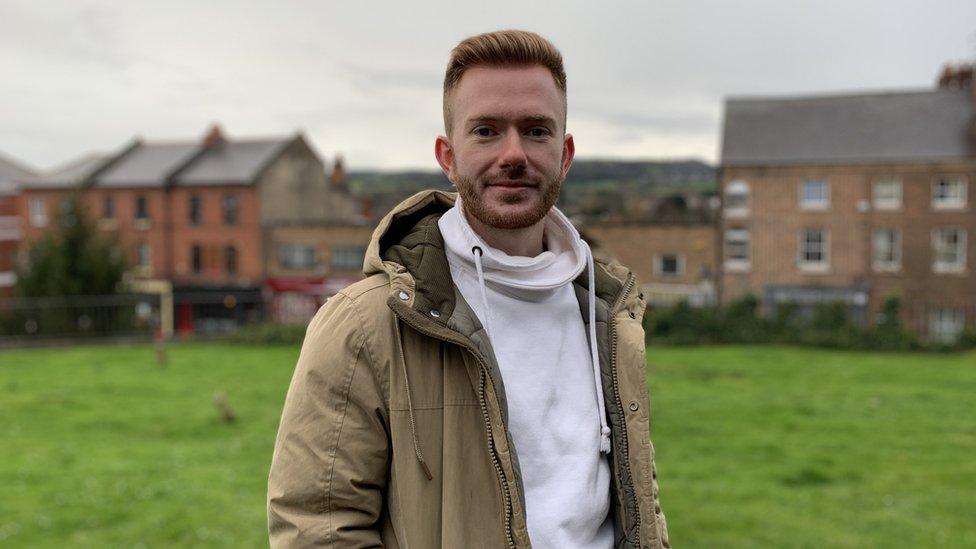
Scott Jones said he felt he had to vote "tactically" in Delyn because he thought the result would be close
Scott Jones voted Labour in Delyn last December, but said it was with a "heavy heart."
"Here in north Wales the seats are so close between Labour and the Conservatives, you are sort of funnelled into one or the other.
"I would have rather voted for a smaller party like the Liberal Democrats or Plaid Cymru but it's just not something you can do here."
"I had concerns over the Labour leadership, I didn't like Boris Johnson either. So it was a really, really difficult thing to weigh up on either side.
"I think I made the right decision in the end. If anything what's happened in the last year has shown you need competent people to do the job, you don't just want somebody who can be good on TV, and write funny articles and make funny speeches."
He adds: "Labour have to win here again - it's as simple as that. Without winning places like Delyn which have voted Labour for decades, you're not going to see a Labour government."
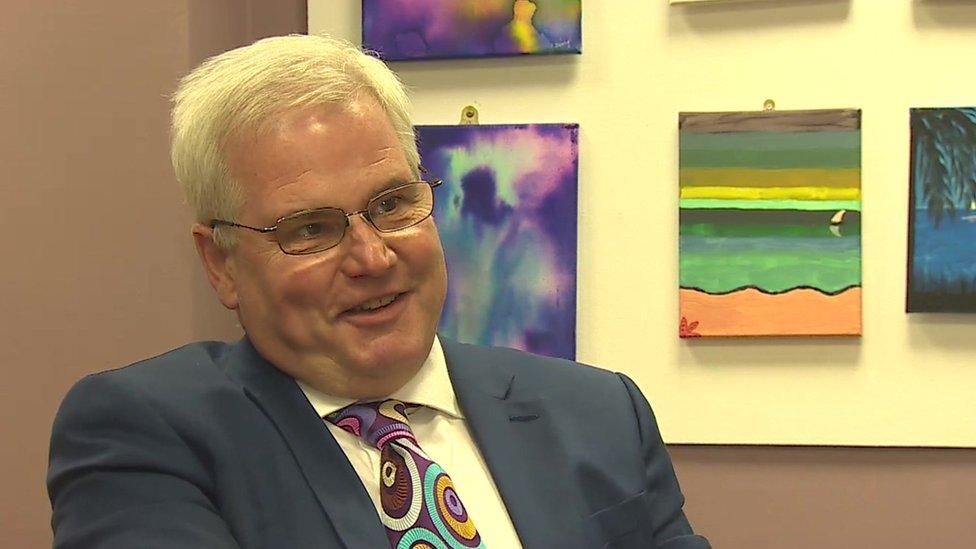
Mark Tami MP holds the most marginal seat in Wales - Alyn and Deeside - and is now the only Labour MP in north Wales.
Labour MPs are well aware of the challenge Scott mentions - few more so than Alyn and Deeside MP Mark Tami.
"Thanks for reminding me!" he laughs, as I probe what it's like to hold the most marginal seat.
"On the doorstep a year ago, it was the then-leader of the party and it was Brexit. They were the issues that obviously led to the catastrophic result we saw for Labour in the UK as a whole, but obviously in north Wales where we went down to just the solitary seat.
"Within the Brexit vote, it wasn't just about Europe it was people who felt left behind, that politicians didn't care about them."
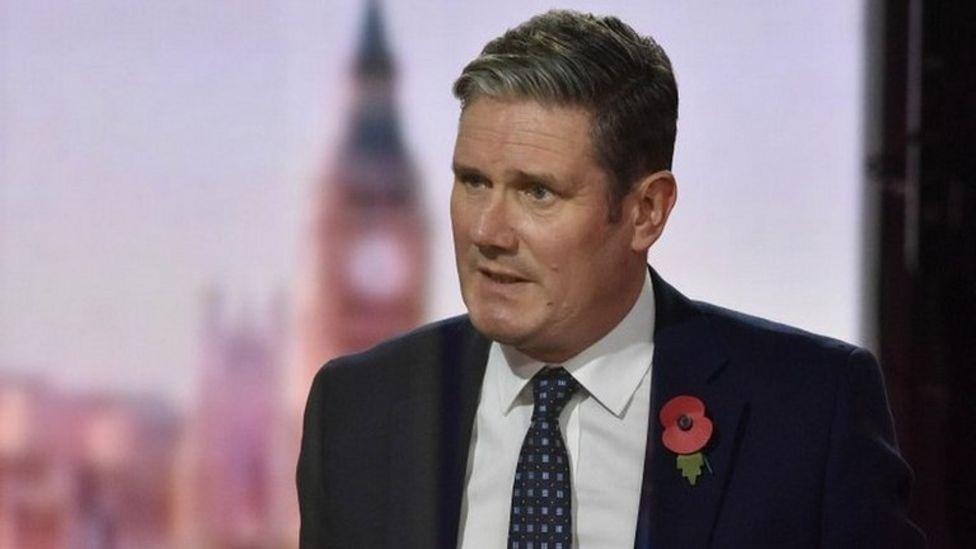
The Labour leader Keir Starmer was elected in April, after Labour's heavy defeat in December.
But Mr Tami is hopeful Labour can re-engage with voters in the area.
"I think the party is re-engaging under Keir Starmer. I think the polls show people relate to him in the way they didn't to Jeremy Corbyn.
"It's a big task - it's not going to turn it around in a second but I think it is there to be won."
Cardiff University's latest Welsh political barometer, external suggests the Westminster voting intention for Labour in Wales is at its highest since December 2018.
It projects that, were there a vote now, this could mean Wales's new Conservative seats turning red again, except - narrowly - Wrexham.
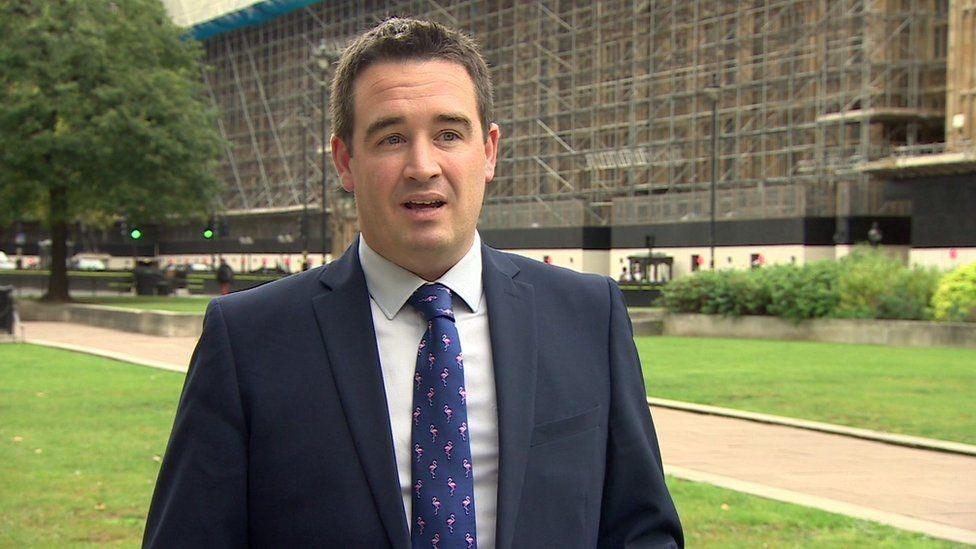
James Davies MP said Brexit, the Labour leadership and Boris Johnson's leadership were behind the Conservative win last year
But Conservative Vale of Clwyd MP James Davies, who was re-elected last year, says he's confident they can hold onto people's votes.
"The pandemic has shown the problems you have when there is inequality between different regions and it has to be something we address.
"Ultimately, the seven Conservative MPs in north Wales work together as a team and are working very hard on the ground.
"My interpretation of the real world, as opposed to Twitter, on the ground is that people want us to do well and to be helping their communities and that's what we're striving to do."
But he adds that he agreed that if there were not "trade deals with the EU and indeed other countries too, that will hinder this country".
"However, we had a referendum and there was a decision taken. My view was always that the end result would be a good one and it was getting from A to B that would be a challenge".
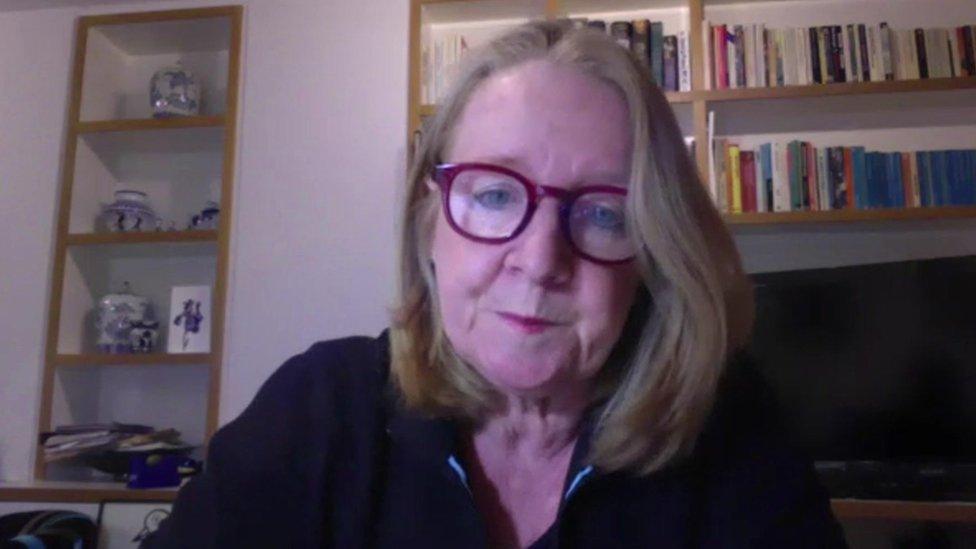
Britain Thinks co-founder Deborah Mattinson says the mood in "Red-Wall" seats now is "mixed"
Deborah Mattinson, co-founder of Britain Thinks, has spent the last year interviewing voters who left Labour for the Conservatives in former "Red Wall" seats across the UK.
"I think the mood is mixed in the 'Red Wall' now, I think people started with a massive spring in their steps, with very, very high hopes.
"As the months unfolded, people began to be more and more sceptical I suppose. By May, June the disappointment was palpable.
"Where are they now? It really is a mixed bag."
She says when asked to describe the UK government's performance in a word, these voters' choices ranged from "shambolic" and "misleading" to "very well done."
On the new Labour leader Keir Starmer, Ms Mattinson says they feel "he seems competent, he seems reasonably in touch".
"But the problem he faces, and again this is partly due to the pandemic, is setting out his stall. They don't know what he believes in, they don't know what he stands for."
What is clear is the north east will be a key battleground at next year's Senedd elections, and in future general elections to come.
Related topics
- Published13 December 2019
